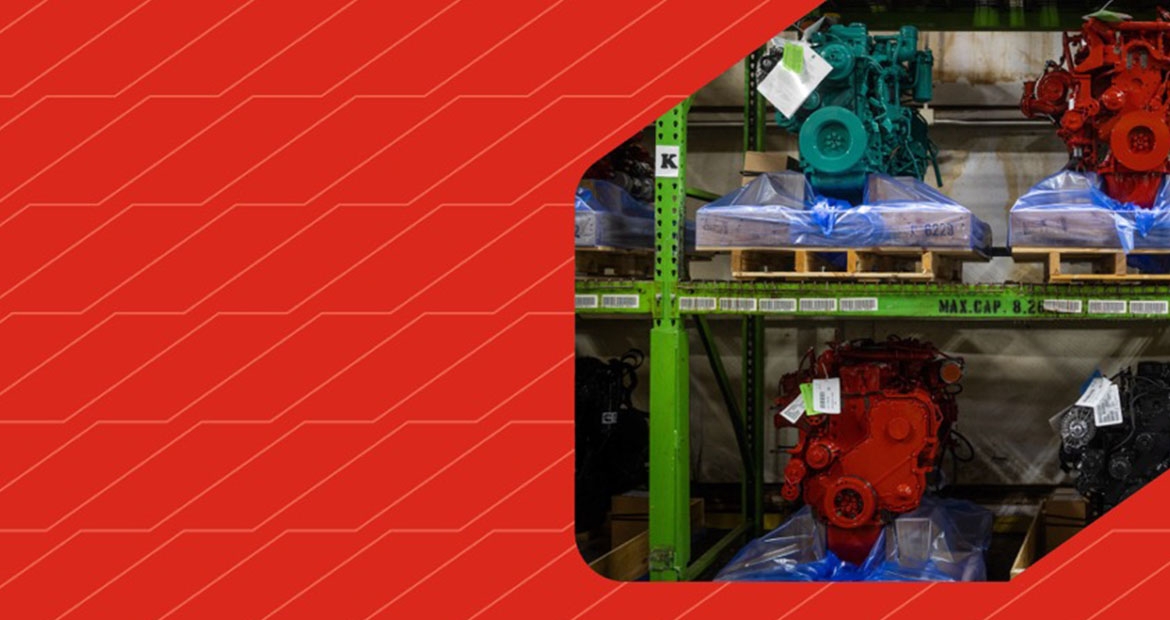Tech Neutrality Is the Growth Path Into the Next Era of Smarter, Cleaner Power
Rhea-AI Summary
Cummins Inc. outlines its strategy for navigating the energy transition through tech neutrality and its Destination Zero initiative. The company emphasizes that unlike passenger vehicles, commercial and industrial applications require diverse decarbonization solutions. Through its broad portfolio approach, Cummins aims to reduce cumulative carbon by an estimated 1.4 gigatons. The strategy includes advancing both traditional technologies like fuel-agnostic internal combustion engines and new zero-emissions solutions through Accelera. The company highlights how different markets, from buses to mining trucks to long-haul vehicles, require tailored solutions based on their unique operational demands and infrastructure requirements.
Positive
- Estimated carbon reduction of 1.4 gigatons through technology innovations
- Diversified technology portfolio strategy reducing market risks
- Strong positioning in multiple market segments (buses, mining, long-haul)
Negative
- Heavy dependence on external factors like infrastructure development and customer adoption
- Longer timeline for achieving zero-emissions in certain markets like mining
- Complex transition requiring significant ongoing R&D investment
News Market Reaction 1 Alert
On the day this news was published, CMI gained 3.17%, reflecting a moderate positive market reaction.
Data tracked by StockTitan Argus on the day of publication.
NORTHAMPTON, MA / ACCESSWIRE / November 13, 2024 / Cummins Inc.

By Jonathan Wood, Vice President - Chief Technical Officer (CTO)
The industries Cummins Inc. powers play a critical role in impacting climate change. We have the opportunity and responsibility to leverage our expertise to develop sustainable solutions that enable our customers' success, positively impact our communities and protect our planet for future generations.
The greatest opportunity Cummins has to meet our environmental goals is by continuing to execute Destination Zero, our commitment to sustainability and helping our customers navigate the energy transition while growing our business.
Unlike passenger cars, there is not a single solution that will work to decarbonize commercial and industrial applications. That's why at Cummins, we are investing in a broad portfolio of technologies - not only as part of our environmental strategy - but also as a key component of our business growth strategy. We believe tech neutrality is the growth path into the next era of smarter, cleaner power, for three key reasons:
Markets in the commercial and industrial industries have diverse and unique challenges, needs and goals in decarbonization
We can make a stronger impact by starting today with tech neutrality and a broad portfolio of solutions
There is space to advance "current" technologies, such as fuel-agnostic internal combustion engines (ICE), to remain part of the solution in the future alongside new technologies
Serving diverse markets in this energy transition
We serve customers in some of the world's most demanding and economically vital applications with a variety of use cases, duty cycles and power needs. The majority of these applications are vastly different from passenger cars in how they are used, the environments in which they operate and what drives buying decisions.
In addition, external factors beyond our control impact our customers' journeys of reducing emissions while meeting their varied requirements. Some of these factors include the adoption of new technologies, stronger emission regulations and availability of lower-and-zero carbon fuels and infrastructure.
For example, the bus market has been one of the first to start the transition to battery electric solutions. This makes sense for a few key reasons:
many buses run on fixed, shorter routes, requiring a shorter range of charge
buses typically return to a central base every night, making charging more feasible without broad infrastructure buildout
though the initial cost is higher for battery electric, customers in this space are motivated by municipal environmental goals, available incentives and lower maintenance and operating costs
Alternatively, a mine truck operates long hours carrying heavy loads under some of the most extreme conditions with temperatures ranging from +50C to -50C and altitudes exceeding 4200 meters. Operational efficiency is critical. Although most large mining companies have committed to sustainable mining and have set decarbonization goals inside the 2050 Paris Agreement targets, the path to zero in mining has very different requirements and timeline to buses.
It will take longer to advance economically viable zero-emissions technology to serve mining customer needs. We will likely see a number of potential solutions adopted over the coming decade. It will depend on the unique operational challenges and infrastructure at the mine location. These could include hybrid systems, alternative fuels, fuel cells and battery electric technology.
Finally, a heavy-duty truck in the long-haul trucking market often travels 300 miles per day - and will generally go over one million miles in its lifetime - all while carrying heavy payload in often challenging driving environments. Long-haul trucks also take widely varying cross-country routes and aren't returning to a central base daily. These fleet customers are also committed to decarbonizing effectively and the regulatory environment will drive low / zero carbon solutions to the market. As such, low carbon fuels, hybrid and electric could play a role in this but infrastructure deployment will determine rate and pace of adoption and economics of operation.
By committing to offer a broad portfolio of power solutions, Cummins is able to provide the right decarbonization solution at the right time to the right customer.
Making an impact by starting to decarbonize today
We launched our customer-driven, multi-solution approach that includes advancing the company's core business as well as developing new, zero-emissions solutions through Accelera™ by Cummins, in Destination Zero two years ago,
Cummins leaders clearly recognize that path to zero emissions would not be linear and highly influenced by external factors. We will need to invest in a range of technical solutions to make a significant impact across the short-, medium- and long-term. We must do so while continuing to drive economic growth and inclusion. We also need policies that set emissions goals and allow our business to develop the solutions to get there, using all available technologies including advanced diesel, natural gas, hydrogen, hybrid electric, battery-electric and fuel cell electric power. Government support is crucial for infrastructure, development, and deployment of new technologies.
Innovating lower-emissions advanced diesel and natural gas engine solutions together with efficient transmission systems, rather than waiting to go to market with fully zero-emissions solutions, will allow us to further cumulative carbon reduction by an estimated 1.4 gigatons - the equivalent of removing all trucks globally from the road for three years.
Cummins' diesel and natural gas engines are among the most efficient products on the market and have significantly reduced emissions compared to predecessors from the 1980s. Combining this with integrated drivetrains and telematics data further improves the fuel economy of the vehicle. We continue to make remarkable strides in improving fuel economy and reducing the carbon footprint of our products.
Space for all technologies to fit in the energy transition journey
People usually refer to internal combustion engines as "old" or "current technologies", while batteries and fuel cells are known as "new" technologies. Thinking about this challenge as a choice between "old" and "new" technologies is too binary to solve this issue over the coming decades.
External factors beyond our control impact our journey of reducing emissions, such as customer adoption or availability of lower-to-zero carbon fuels and infrastructure. That's why Cummins is confident in our business strategy to continue offering a broad range of technology solutions to meet our customers' needs.
Commercial vehicle markets are complex and require solutions to serve operational demands of customers and deliver on future sustainability goals. We are innovating across a range of products, and we believe there is considerable growth opportunity for both our core business technologies and those developed by Accelera throughout the energy transition and for many years to come.
View additional multimedia and more ESG storytelling from Cummins Inc. on 3blmedia.com.
Contact Info:
Spokesperson: Cummins Inc.
Website: https://www.3blmedia.com/profiles/cummins-inc
Email: info@3blmedia.com
SOURCE: Cummins Inc.
View the original press release on accesswire.com








